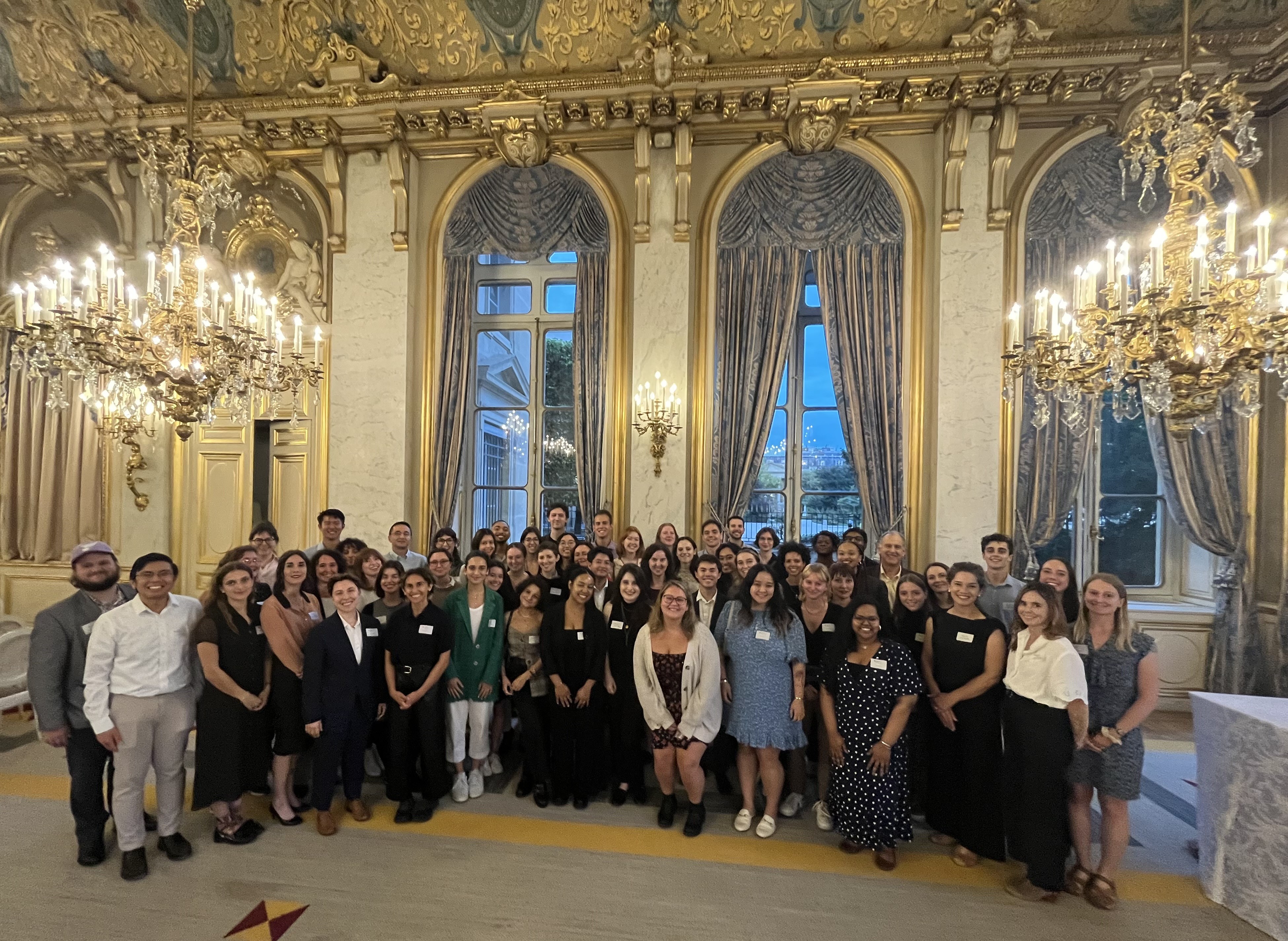Fulbright-Université de Montpellier Award
France
Number of recipients
Conduct research and collaborate with colleagues at the University of Montpellier.
An academic department, institute, laboratory, or research center affiliated with the University of Montpellier. The University of Montpellier is situated in and around the city of Montpellier, a few miles from the Mediterranean Sea.
The University of Montpellier, founded in 1220, is home to 50,000 students, and 17 colleges, institutes, and schools. The university offers many fields of study, including: law, political science, economics, education, medicine, dentistry, pharmacy, hard science, sports science, engineering, management, and environmental studies. It is ranked in the top 200 globally, and 2nd in Ecology in the Shanghai ranking.
The I-SITE program of excellence, led by the university, combines the forces of 16 institutions that are running labs jointly with UM (among them: CNRS, CIRAD, INRAE, INSERM, IRD, IFREMER, INRIA, etc.). Together they are developing in Montpellier a thematic research-intensive university recognized for its impact in the fields of agriculture, environment and health. It provides particular support for research in agriculture, environmental science, biodiversity, biology, and health, in line with its key objectives to Feed, to Protect, to Care, thereby linking scientific disciplines with key societal questions.
Projects are sought in all disciplines but should preferably relate to one of the following key themes: food safety, the environment, human health.
All applicants must meet the Program eligibility requirements (click to review the requirements).
Questions regarding obtaining an affiliation may be addressed to the International cooperation office at cooperation@umontpellier.fr.
You may be asked to participate in an interview as part of the in-country selection process.
Charlotte Goodwin, US Program Officer at the Franco-American Fulbright Commission
Université de Montpellier research centers
Key research & education projects
Resources for visiting international researchers
€2,800 (approx. $3,000) per month. There is no allocation for accompanying dependents. Applicants are responsible for finding their own housing, although some host institutions may facilitate the process. The Euraxess network can also help with housing and local logistics.
International travel allowance provided for grantee only. All research scholars receive a travel allowance of €1,200 (approx. $1,300).
The average monthly rent for a studio apartment in central Montpellier is 712 Euros (approximately $767). A public transportation pass costs 60 Euros per month (approximately $64).
Grantees will be able to enroll in free French language courses.
Visa fees will be waived for Fulbright grantees and their accompanying dependents. The Fulbright Commission will provide support and guidance for the visa process.
France
Why France?
France has been the world's top tourist destination for over 25 years. Visitors come from all over to enjoy French cuisine, tour its famous museums and monuments, and explore its beautiful cities. More on French tourism and attractions.
The country has an excellent and accessible healthcare system, a high-quality public school system starting at nursery school, comprehensive public transportation and high-speed rail networks, and lively cultural scene.
France is also a key place to do research, teach, or pursue professional development. It is home to 72 universities, 227 engineering schools, 220 business schools, 45 state art schools, 22 architecture schools, and 3000 private institutions of higher education. Research is a high priority: 2.22% of the country's GDP is devoted to research and development. The CNRS (national scientific research council) produces the highest number of scientific publications in the world. More on reasons to choose France and the French research landscape.
Applicants can find useful practical information about life in France (housing, schooling, etc.) through the free national Euraxess network.
Being a Fulbrighter in France

Fulbright France hosts two all-grantee events every year (orientation in September and mid-year meeting in February) in Paris. Fulbrighters gather together to get practical information, meet each other, learn about important issues in French society, and explore the cultural sites of Paris. There are also other activities on offer, including conferences, informal gatherings around a galette des rois or French cheeses, and concerts from Fulbright musicians.
Candidates interested in applying can visit the Franco-American Commission's website. For more detailed information, contact Charlotte Goodwin, US Program Officer at the Franco-American Fulbright Commission, at cgoodwin@fulbright-france.org.
Quotes from Fulbright scholar alumni:
"My fellowship helped me establish new connections and cement existing research collaborations with French scientists and their students in a substantial way that will carry forward for at least the next decade. The program also gave me a new window into the graduate education of French students that I will bring back to my home institution and that will benefit them and future exchanges that will occur. Finally, the experience gave me, and my family a much more detailed picture and appreciation of France and its people with new insights into its history and prehistory, people, and society."
"I refer to this year as the 'magical year' because I was able to focus on my research, to make enduring connections with researchers based in France, to drastically deepen my ability to work in French, and to enjoy my daily life in a way I often find impossible while I’m in the midst of a full semester of teaching, administrative work, and meetings at my home institution. I came to better understand French academia and to build professionally meaningful relationships at my host institution. I was a citizen of a city, a member of an institution, and a speaker of a language in which I was immensely happy."
“The Fulbright program enabled me to develop several completely new avenues of research that would have been absolutely impossible without having this extended time to be in residence in my French host lab. On a personal level, Fulbright enabled me and my family to have a fascinating and immersive year in European culture that will especially benefit our kids for decades to come.”
Fulbright France has an active YouTube channel with many interviews of Fulbrighters past and present: https://www.youtube.com/user/ComFulbrightFR.
